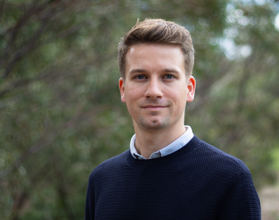
Blood samples from more than 600 young people who are at ultra-high risk of developing psychosis will be screened to identify biomarkers of psychotic disorders, as part of a new study to be undertaken by Orygen, the National Centre of Excellence in Youth Mental Health.
The study aims to use the identified biomarkers to help clinicians predict the clinical outcomes of young people at ultra-high risk of developing psychosis and provide these young people with personalised treatment.
The study will be led by Dr Maximus Berger, a research fellow at Orygen. Dr Berger has received funding for the study through a fellowship grant from the Melbourne Academic Centre for Health.
Dr Berger said the study had the potential to significantly increase the precision with which young people at ultra-high risk of psychosis are treated.
“Current prediction models for psychosis rely on clinical presentation and diagnostic criteria,” Dr Berger said. “Although these models are valuable, they are also quite limited. In other branches of medicine, for example breast cancer research, biomarkers have been found that are able to determine which treatment options will have the greatest likelihood of success. We are hoping to find biomarkers for psychosis that will enable a similar personalised approach.
Dr Berger said previous attempts to identify biomarkers for psychosis had used samples from adults who were already living with psychosis. “Our sample of more than 600 young people who are still at risk of developing psychosis offers us a great opportunity to gain insight into the early stages of psychotic disorders,” he said.
The study samples have been collected through two previous multi-centre clinical trials led by Orygen at Orygen Youth Health and other similar services within Australia and internationally. The sample is the largest to date of young people at ultra-high risk of psychosis.
“The goal of this research is to enable clinicians to give young people at ultra-high risk of psychosis the best possible chance of recovery by personalising their treatment based on their own biological information,” Dr Berger said.
The study commenced in January 2019 and will run for 12 months.